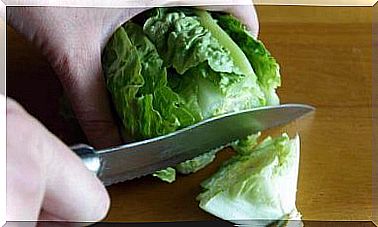9 Science Tips To Learn Anything Faster
If you are one of the people who like to learn new things faster, we present you 10 science tips to learn anything. They will help you to be more agile when it comes to understanding, memorizing and remembering. In addition, you will be able to retain all the information.
Each person has cognitive processes to learn that are different and complex. However, if you know and put into practice some methods to make it faster and easier, your brain will remember information effectively and you will achieve your goal.
Then, then, we present some of the tips that science gives us to learn faster. Do not miss them.
1. Visual techniques
A study points out the importance of resorting to visual techniques as an innovative learning method and alternative. The use of resources such as images, mind maps, and infographics is noted to be helpful in learning historical facts, important dates, data, theories, and concepts.
Information is stored in the brain in a dynamic and didactic way. In addition, by being processed in a chronological and meaningful way, it is easier to learn and remember this information at the times when we need to use it.
2. Teamwork
An investigation, whose objective was to determine the learning strategies most used by students of the Polytechnic School of Chimborazo, pointed out that the one that most predominates in this population is related to teamwork.
This study established that when students have the possibility to study as a team, they learn faster. Which improves if active forms of try and error are included. In the same way, this learning mechanism also makes the acquired knowledge last longer.
The reason for this is that in this teamwork different techniques are used, such as reading, writing, visual forms that are later socialized or shared among peers.

3. Concentration
When you want to learn faster, the best thing you can do is fully prepare to study. This means without distractions or more obligations. If you go into multitasking mode, it will be more difficult to store the information you want.
Also, every time you get distracted, it will take 20 minutes to refocus. Concentration is so important that studies on academic performance indicate that the lack of it in students at school limits the development of knowledge.
4. Write what you have learned
If you are studying and have already learned something new, you should take a sheet and a pen and write it down. It works the same if during the process you take notes, because when you read you learn, but when you write it you are reinforcing the coding of the information.
In fact, studies on the impact of writing as a learning method have indicated that writing is more than a skill. It is a method that allows to store knowledge and that helps to improve the way the world is conceived.
5. Practice
Another of the tips of science to learn anything faster lies in practicing what you have learned. Various studies have indicated that knowledge or theoretical content must always be accompanied by practice.
Once you practice, your brain will code that moment and, for the next time you have to do it, you will have reinforcement and you will do it better and better.
6. Teach
When you use your knowledge to teach others, you are using your own words to describe the theory of something that you already master. That is, you are accessing information that you have already encoded in the brain and reinforcing it each time you verbalize it.
On the other hand, every time you have to teach a topic, even if you master it, it is normal for you to study to clear up any doubts, also reinforcing what you have already learned. Thus, little by little, you become an expert.
7. Try and error
Being wrong is not bad; It is natural. Errors help us to internalize how we do things and what we can do to improve them the next time.
In fact, studies on motor learning show that people need to practice frequently, make mistakes, and correct them.
The objective of this is to improve the learning process and reach the objective of making fewer mistakes and reducing the effort put into the task or topic.
8. Learn little by little
Skills are easier to master when you learn them little by little. If you divide everything you have to study into small and concrete sections, you concentrate on learning them one by one. You will be giving space to master all the knowledge you are looking for without saturating yourself.
As we mentioned in the previous point, in this way you can make mistakes, solve and continue with a new topic, strengthening your knowledge. If you are patient, once you learn everything and gather the knowledge you will see how you will get superior skill.

9. Sleep between study sessions
Many university students tend to study tirelessly and put sleep aside. It turns out that a study on the relationship between sleep and learning indicated that it contributes to the retention of information in the long term. According to this research, it occurs because memory processes are reactivated.
Additionally, learning sessions in conjunction with sleep reduce the amount of practice required by 50%. To this is added that, in this way, the information is retained much better and for a long time. So the ideal is that you study what you require, sleep and return to your session.
The experts who advanced this article point out that the ideal is to have a study session of 30 to 50 minutes, take a sleep of 1 hour and continue with another session of another 30 or 50 minutes.
Practice these science tips to learn anything faster!
As we mentioned, putting these science tips to learn faster can bring many advantages to your learning process. They are very simple and easy to practice recommendations, but they will make a difference in your methodology.
If this is your goal, don’t settle for one piece of advice. Put a minimum of two into practice and see how they work for you. If one does not seem useful, you can try another or reinforce the one that did work.








